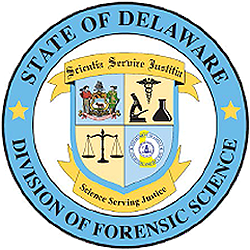Chemistry Unit
The mission of the Forensic Chemistry Unit is to provide law enforcement agencies with state-of-the-art forensic analysis of seized illegal or controlled substances and fire debris evidence in a timely and efficient manner. The Forensic Chemistry Unit's commitment to quality is shown in its compliance with the International Organization for Standardization (ISO) 17025 standard, as well as the recommended standards set by the Scientific Working Group for the Analysis of Seized Drugs (SWGDRUG) for the forensic examination of seized drugs and by ASTM International and the Organization of Scientific Area Committees (OSAC) for fire debris analysis.
The Forensic Chemistry Unit maintains a comprehensive training program intended to prepare chemists for forensic casework. Chemists complete required readings, shadow qualified chemists, process practice cases, complete independent competency cases, and must demonstrate technical competency. Training culminates in a moot court exercise. After successful completion of the training program, the chemist is authorized to process casework, issue reports, and provide expert witness testimony.
Controlled Substances Section
Chemists in the Controlled Substances Section perform qualitative analysis on a variety of substances, including:
- Plant material
- Powders/Chunks/Crystals
- Commercially manufactured pharmaceuticals
- Clandestine substances
- Liquids/Oils/Waxes
- Food products
Substances are screened using appropriate methods such as microscopy, color tests, or logo identification. Substances are then confirmed qualitatively through Gas-Chromatography-Mass Spectrometry.
Fire Debris Section
Chemists in the Fire Debris Section process evidence recovered from fire scenes to determine the presence of ignitable liquid residues. A variety of evidence is submitted to the section, including:
- Debris from a fire
- Soil or vegetation
- Clothing from the victim or suspect
- Liquids or containers that previously held a liquid
Evidentiary samples are prepared and analyzed according to ASTM International Standard Practice and Test Methods and OSAC recommended standards to determine the classification of any ignitable liquids present in the submitted evidence.
For officers seeking an appointment to drop off drug evidence, please email: DFSDrugAppointment@delaware.gov
Additional information regarding the Forensic Chemistry Unit may be found in the Division of Forensic Science Annual Report.







